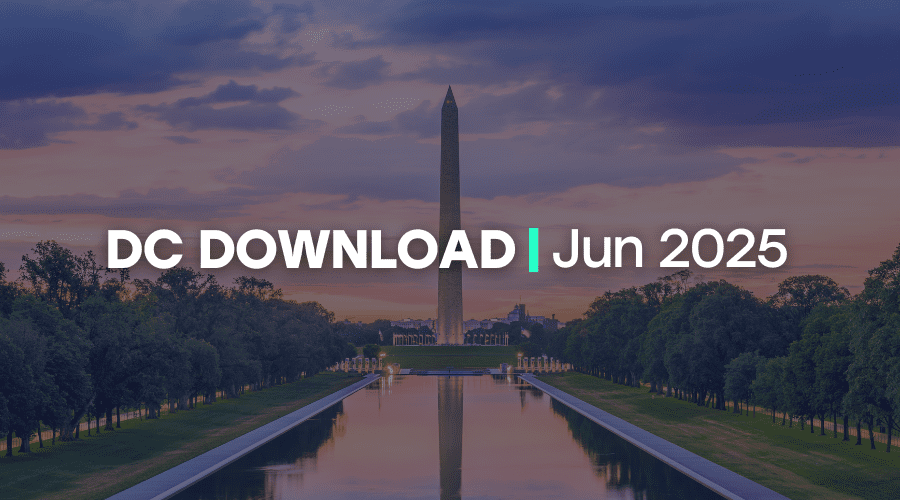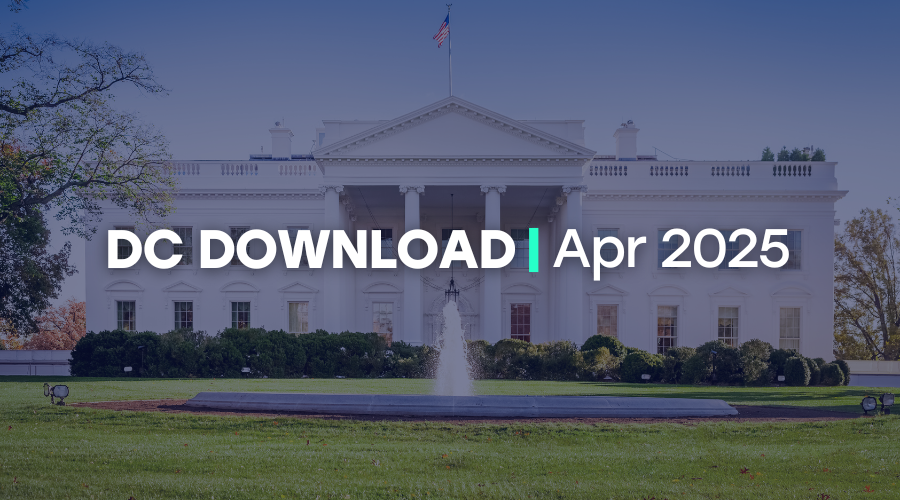As summer sets in and temperatures rise across the nation, so too does activity in Congress — and the charitable sector is feeling it. June marks a seasonal shift: Schools are out, families are adjusting to new routines, and the charitable sector is ramping up summer programming to meet growing community needs. At the same time, federal policy decisions are heating up, with lawmakers debating tax provisions, budget priorities, and reforms that could significantly shape how charities operate and serve.
This moment is a reminder that just like the weather, the policy landscape can shift quickly — and the charitable sector must stay agile. Whether we’re expanding the charitable deduction, fighting for equity in federal funding, or ensuring communities remain supported through the summer months, our work remains as vital as ever.
Improvements, But Sector Still at Risk in Senate Reconciliation Package
Just ahead of the Juneteenth recess, the Senate Finance Committee released its version of the reconciliation package — and it carries both promising progress and serious red flags for the charitable sector. See more details in this blog about harmful provisions removed, new research, and some potential progress on the charitable deduction. On June 20, Independent Sector — in partnership with the Council on Foundations, National Council of Nonprofits, and United Philanthropy Forum — sent a letter thanking Senate leadership for removing some harmful provisions, and urging them to strip others that remain. The letter is backed by support from approximately 2,300 organizations across all 50 states and Washington, D.C.
Oversight or Overreach? House Hearing Targets Nonprofits with Ideological Attacks
On June 4, the House Committee on Oversight and Government Reform’s Subcommittee on Delivering Government Efficiency held a hearing provocatively titled “Public Funds, Private Agendas: NGOs Gone Wild.” While trust in the nonprofit sector remains consistently high among the public, the hearing marked a concerning continuation of politically motivated attacks on charitable organizations.
Despite the rhetoric, the facts tell a different story: according to IRS statistics, less than 5% of nonprofits have affiliated 501(c)(4) organizations, and fewer than one-third of 501(c)(3) organizations reported engaging in advocacy or lobbying. The vast majority of nonprofits are not concerned with partisan politics — they’re focused on feeding families, providing shelter, delivering health care, educating children, and meeting urgent needs in their communities. When nonprofits do violate their tax-exempt responsibilities, there are already well-established legal mechanisms to hold them accountable.
Weaponizing political ideology against the nonprofit sector not only threatens the legitimacy of the oversight process, but also undermines the critical work organizations do every day to serve the public good.
Homeland Security Committee Targets Nonprofits for Migrant Aid
House Committee on Homeland Security Chairman Mark Green (R-TN) recently sent letters to several nonprofit organizations as part of a sweeping investigation into whether nonprofits played a role in facilitating illegal immigration during the Biden Administration. The letter points to over 10.9 million encounters at the southern border and claims that federal funding to these organizations for services such as shelter, transportation, and translation may have served as a pull factor for additional border crossings.
While congressional oversight is an essential part of our democracy, the framing of this inquiry raises serious concerns. The nonprofits now under scrutiny have decades-long track records of providing humanitarian aid that is rooted in legal mandates and core moral values. Their work — often carried out in partnership with federal agencies — is not new, subversive, or politically motivated. We are deeply concerned by efforts that recast compassion and service as complicity and remain committed to standing with organizations that respond to human need with integrity and care. We’ll be watching this investigation closely and keeping our members updated on any developments. Any Independent Sector member organization who received Chairperson Green’s letter — or a similar request — is welcome to reach out with questions. We stand ready to share resources, coordinate responses, and offer whatever guidance you need.
FY26 Appropriations Loom as Reconciliation Continues
As Congress nears the finish line on the reconciliation package, attention will soon shift to the next major legislative priority — the Fiscal Year 2026 federal appropriations process. Lawmakers must pass their appropriations bills — or approve a continuing resolution — by September 30 to avoid a government shutdown. With the reconciliation package consuming most of the oxygen on Capitol Hill, movement on appropriations has been largely on hold.
So far, only three appropriations bills have advanced out of the House Appropriations Committee, and there are several additional markups scheduled to happen in the coming weeks. With tight timelines and a highly partisan environment, there’s concern that the process could stall, leaving critical funding for nonprofit programs and services in limbo.
We’re closely monitoring committee activity and early signals from congressional leadership and will continue providing updates as the process unfolds. The nonprofit sector depends on stable, reliable federal investments — and we’ll continue to work to ensure that our priorities are protected in whatever package moves forward.
Giving on the Rise: New Report Shows Strong Growth Across the Sector
On June 24, GivingUSA released its 2025 report, and the findings offer encouraging news for the charitable sector. In 2024, total charitable giving grew by 6.3% in current dollars, or 3.3% when adjusted for inflation, reaching an all-time high. This growth is a testament to the resilience of the nonprofit sector and the generosity of donors, even in the face of economic uncertainty and shifting policy landscapes.
The report highlighted particularly strong gains in individual giving, which makes up 66% of all charitable giving. Individual contributions grew by 8.2% in current dollars (or 5.1% adjusted for inflation), signaling renewed confidence and capacity among everyday donors. Corporate giving also saw a healthy 9.1% increase (6% adjusted), and foundation giving remained steady and strong, surpassing $100 billion for the third consecutive year.
These numbers are more than just statistics — they represent investments in communities, services, and people. They underscore the critical role charitable giving plays in sustaining everything from housing and health care to education and emergency response. While this upward trajectory is promising, it also reinforces the importance of sound federal policy that protects and expands giving incentives.
That’s why Independent Sector will continue working closely with Congress to advocate for policies that support this momentum and ensure nonprofits have the tools they need to meet growing demand. There’s more work to be done — but this data is a clear reminder that when giving is supported, communities thrive.
Register for Independent Sector’s National Summit 2025
Registration is now open for Independent Sector’s National Summit 2025, taking place October 27–29 in Atlanta, Georgia! As our sector rises to meet urgent challenges and long-term needs, don’t miss this unique opportunity to join 1,500 leaders and professionals from across the nation to align on solutions, elevate our collective voice, and drive lasting change. Help shape the future of the charitable sector. We look forward to seeing you in Atlanta!
Travis Swanson is the Government Relations Manager at Independent Sector



